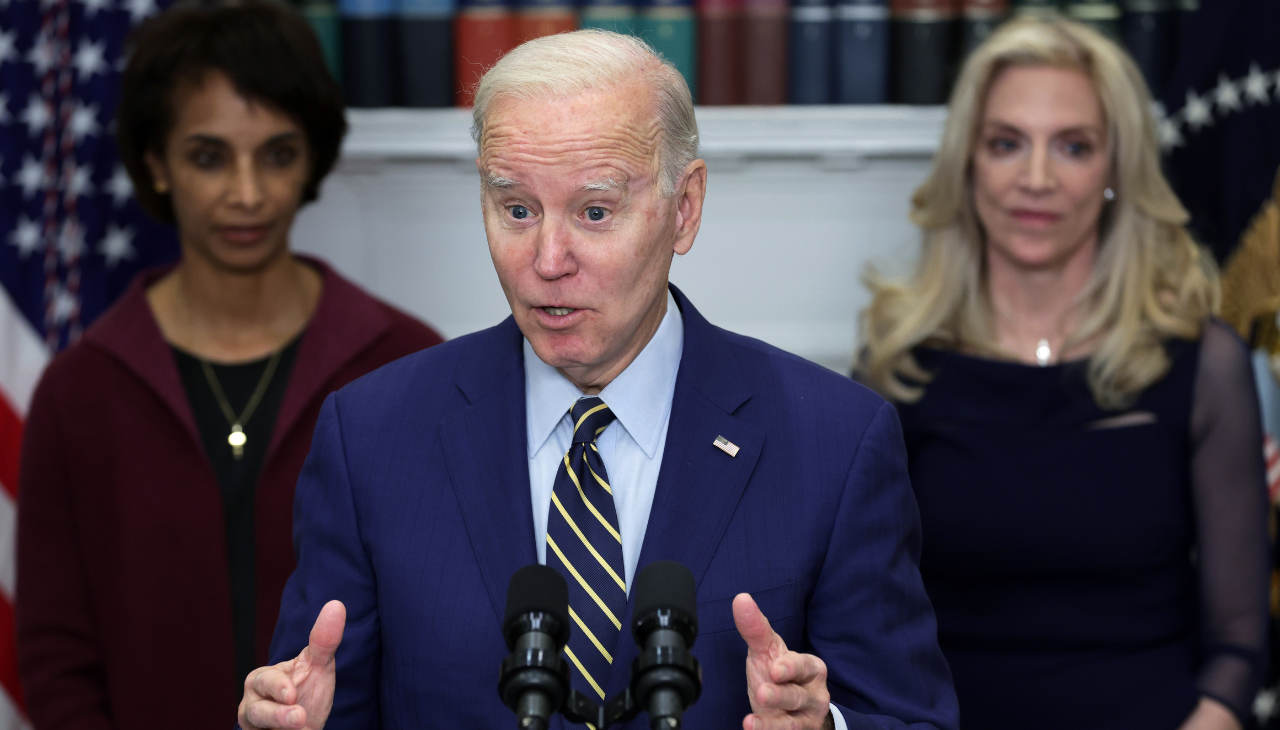
Biden’s budget provides the Department of Education a nearly $10.8 billion increase
Biden’s 2024 budget focuses on academic excellence, improving learning conditions, creating pathways for Global engagement, and making college affordable.
President Biden's fiscal 2024 blueprint requests $90 billion for the Department of Education, a nearly 14% increase from the 2023 enacted level which is equivalent to $10.8 billion.
The budget proposal will address learning and funding gaps and “build a higher education system that grows the middle class,” as reported by Inside Higher ED. The proposal will invest in supporting mental health for students, improve learning conditions, and make postsecondary education inclusive and affordable— to close the opportunity and achievement gaps in high-poverty schools, $20.5 billion for Title I to help schools sustain programs that support students' academic recovery, which developers critical funding to 90% of district schools in the U.S—a $2.2 billion increase above 2023 enacted level.
Still dealing with the lingering impacts of the COVID-19 pandemic, Biden’s proposal includes $578 million to increase the number of school-based health professionals, with $428 million for K-12 schools and $150 million for postsecondary institutions— to help build the pipeline of these critical staff.
Over the next ten years, Biden proposes a new $500 million demonstration program to create or expand free, high-quality preschool or community-based settings for children eligible to attend Title I schools—which requires close collaboration among school districts.
In order to support children with disabilities, invests $16.8 billion in the Individuals with Disabilities Education Act (IDEA), a $2.1 billion increase for Part B grants to states and preschool programs, a $392 million increase for Part C to support early interventions for underserved children and families with disabilities; $20 million to ensure military-connected children with disabilities maintain services and $200 million to expand enrollments of children at risk of developing disabilities; also, $303 million to address the shortage of special education teachers.
With the ongoing teacher and paraprofessional shortage, Biden’s Budget invests $3 billion in educator preparation, development, and leadership, including $30 million for the Augustus F. Hawkins Centers of Excellence and $132.1 million for Teacher Quality Partnerships to support educator diversity and well-prepared teacher pipeline.
The Department Office for Civil Rights will receive a 27% increase or a $178 million increase to ensure that the Department of Education has the capacity to protect equal access to education through the enforcement of civil rights laws. In addition, $368 million was to expand the Full-Service Community Schools (FSCS) program in an effort to identify and integrate the wide range of community-based resources needed to support students and their families, more than doubling its previous $218 funding allocation.
“The Biden-Harris budget also supports the Department of Education's efforts to boost global competitiveness by expanding opportunities for multilingual learning, redesigning high schools to include multiple pathways to college and career, and supercharging state and local efforts to make free community college a reality nationwide,” said U.S. Secretary of Education Miguel Cardona in a statement.
For instance, to create pathways for global engagement in elementary and secondary education, President Biden provides $1.2 billion for English language Acquisition State Grants to support English learners through research-based and bilingual education and provides $90 million to help schools build multilingual teacher pipelines and allow States and districts to provide professional development in multilingual education for existing teachers and staff; $10 million for postsecondary fellowships to bolster the multilingual educator pipeline.
However, Biden’s efforts for global engagement do not stop there. He includes $25 million to support a new world language program to improve and expand instructions to states and local education agencies.
RELATED CONTENT
Higher Education
The proposal includes more than $2.4 billion in career and technical training to support the long-term sustainability of the U.S. skilled workforce.
However, given the current nature of the student loan forgiveness lawsuits, it is only fitting that Biden's proposal provides $2.7 billion for Student Aid administration, including Federal Student Aid (FSA), which will provide essential support to student loan borrowers, improve student loan servicing, and ensure the successful administration of the financial aid programs.
President Biden proposes a third increase to the maximum Pell Grant to $8,215 for the 2024-2025 award year.
In fact, to expand free community college education across the nation, Biden has allocated $500 million in a new discretionary grant program to provide two years of free community college through high-quality community college programs that lead to a four-year degree or a good-paying job.
Certainly, Biden’s budget focus on making postsecondary education inclusive and affordable further adds funding for the Postsecondary Student Success Grants to support the systems development to enable students to access non-student aid public benefits with a $30 million allocation. Equally beneficial is the increase of $429 million above the 2023 enacted level to HBCUs, TCCUs, MSIs, and under-resourced institutions, including community colleges. Biden further includes $350 million for four-year HBCUs, TCCUs, and MSIs to expand research and development infrastructure.
“The Biden-Harris Administration is pushing for bold investments to ensure all students have equitable access to schools that welcome and support them, inspire their love of learning, and prepare them to succeed in whichever career they choose,” added Cardona. “President Biden's latest budget proposal calls on Congress to act with urgency and provide our schools with the resources needed to raise the bar in education by promoting academic excellence and rigorous instruction, improving learning conditions, and answering unmet challenges like the educator shortage and the mental health needs of our students.”











LEAVE A COMMENT:
Join the discussion! Leave a comment.